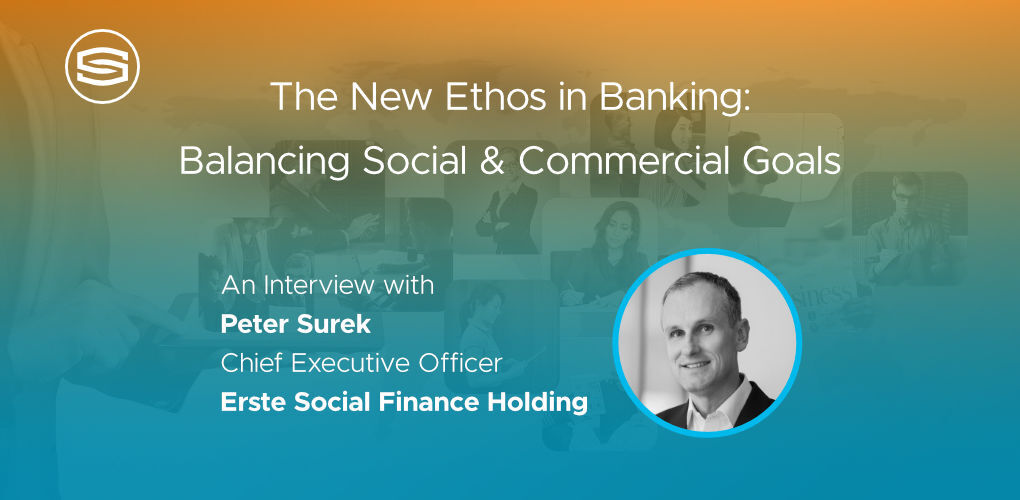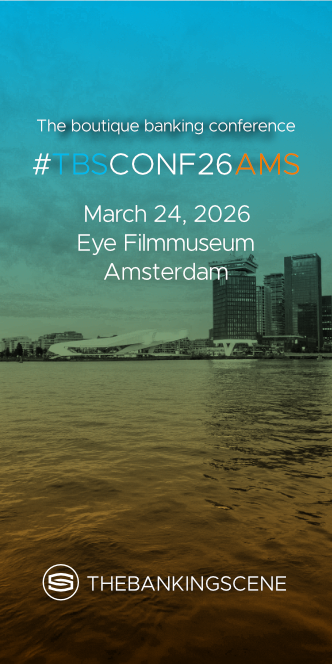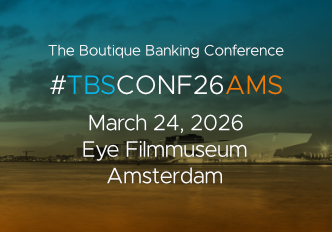
Insights & Opinions
The New Ethos in Banking: Balancing Social and Commercial Goals
Fri, 31 May 2024


The last time I spoke to Peter Surek, Chief Executive Officer of Erste Social Finance Holding, I was inspired by the positive impact the bank has on society which I hope will serve as an example for many more banks. I feel that this is an important topic to include in the book I am writing on "The New Ethos in Banking", and I am thankful that Peter agreed to share with me, how one of the largest financial institutions in Central and Eastern Europe manages to balance its social and commercial goals.
Ethos in banking is defined in many ways. How would you define ethos in banking?
Ethos can be seen as the character of a bank, as perceived by people. It encompasses how the bank sees itself and how society sees it. Ethos includes a set of values and actual behaviours. After all, we know there may be a disconnect between the stated values and the actual behaviour of the bank or the industry.
When discussing ethos in banking, it's important to consider the different segments within the industry. Retail banking, which serves private individuals, operates with a different ethos compared to corporate banking. Individual clients' perceptions of banks are distinct from those of corporate clients. Additionally, investment banking and financial markets are viewed differently. Private individuals require basic banking services such as savings accounts and small loans, while corporate clients need more sophisticated services. Investment banking presents a different set of considerations altogether.
I believe that the problem in the banking industry lies in the perception of its character and role. The typical accusation of greed is not new and has been associated with the banking sector since medieval times. However, the accusations of being detached from the real economy in the last decades is partially true, as some banks have created their own financial economy and forgotten their original purpose. This has significantly impacted the banking industry and how it defined its ethos.
You have social banking within the group, and the group is stock-listed, by the way. Not many banks have that. How is it possible that social banking is so deeply ingrained in the DNA of the group?
During our last interview, I mentioned the founding story of Erste. Even though it dates back 200 years, it remains deeply rooted in the company. Erste was established as a social institution with the mission of growing prosperity by making banking accessible to ordinary people who were excluded from the financial system at that time. This included providing opportunities for small savings and later small credit. This founding mission continues to be ingrained in the company's DNA. Our statement of purpose, created 200 years ago, clearly articulates our role as a savings bank and our objective to reduce poverty. We are committed to promoting prosperity in the regions where we operate. This enduring mission is key to maintaining our commitment to social banking.
The second topic is ERSTE Foundation, which is the bank's largest single shareholder and is dedicated to protecting its mission. ERSTE Foundation is a philanthropic organisation with a mission focused on financial inclusion, prosperity, and support for the region. It operates by using the dividends from the bank to fund various social, cultural, and democratic projects. As the strongest investor, ERSTE Foundation holds a blocking minority with other partners in their syndicate, ensuring that the mission of supporting social objectives is upheld.
Third, I believe a very influential figure was our former long-term CEO, Andreas Treichl, who was also the founder of the Erste Group as we know it nowadays. When Andreas Treichl took over, Erste Bank was a small regional savings bank in Vienna. He developed the bank into one of the largest financial institutions in Central and Eastern Europe. He instilled the original Erste values to the group's DNA, and he was the driving force behind the establishment of social banking during his leadership.
So, I believe these three factors were key: the bank's history, ownership, and the devoted CEO.
You support those who are at risk of poverty and face financial or social exclusion, thus fostering economic growth and prosperity. This noble mission has a positive long-term effect but may also have some short-term negative effects on financial results. How does Erste Group ensure that this mission is accepted and will continue to be accepted in the future as part of its DNA? You mentioned that one of the significant factors is thanks to the former CEO. However, a change of leadership could also mean a change of behaviour. How do you ensure that the new leadership's behaviour remains aligned with the DNA of the group?
Yeah, it's a challenging situation. We are utilising the boundaries of what is feasible within a stock-listed institution. Our social banking group maintains positive financial results by using existing structures and publicly available guarantees. Additionally, we receive support from the ERSTE Foundation for our education programs, making them virtually cost-free for the bank. This is a crucial aspect of our operations.
We operate as a social business within a large corporation, ensuring that we cover our own expenses, which is an important prerequisite for our future without incurring excessive costs.
When considering the size of Erste Group, it's important to note that our social banking initiative is just a drop in the ocean; it represents just a small portion of our more than 340 billion euros in assets. Therefore, from an overall perspective, our impact on the ROE of the bank is not significant. While we may not reach the ROE target of the bank, our contribution is unmaterial compared to the overall financials of the bank.
Furthermore, we are creating spin-offs for things that don't fit within the bank. These separate companies are usually funded by majority equity contribution from the ERSTE Foundation. This is how we manage topics that can't be handled within the bank. Additionally, we use volunteers in some of our activities to help reduce costs.
I believe in the long run, we act as a support system for clients, particularly those facing challenges or in the early stages of their financial journey. This investment in our clients will ultimately lead to long-term and loyal relationships, as clients who receive assistance during tough times tend to remain with the bank for extended periods, unlike those who are merely attracted by marketing campaigns.
I believe that investing in individuals or companies facing financial challenges, as well as those in the early stages of development, and supporting social businesses and NGOs is not only financially beneficial in the long run but also enhances our brand image. As a result of our engagement, we are seen as a bank that cares for society beyond the typical corporate social responsibility activities.
Why do you think it's hard for other banks to realise? If everyone added that drop to the ocean, banks would likely be more trusted and have a more prosperous society as well.
You know, it's much easier to do CSR (Corporate Social Responsibility) than to engage in social banking. You allocate a certain budget, which all the investors agree on, and spend it on CSR. It's much easier to just give out checks to NGOs than to go to your banking factory to design products & processes for specific niche client groups. Many banks have attempted to do something similar but ultimately gave up. Retail banks typically strive to streamline and optimise everything possible to operate as a highly efficient factory. However, this approach makes it difficult when dealing with the specific needs of social organisations like small NGOs or people in financial difficulties.
The next challenge is that you need to conduct in social banking lending a corporate risk analysis for the ticket size, which creates disproportionate costs. This is an important practical consideration.
It seems that another element, perhaps, is the absence of a legacy DNA when a bank is founded solely to make profits. In such cases, the focus is solely on maximising profits within the market position. Other banks may not have the same investor base that we do. Our main investor is actively advocating for our mission.
The bank or the group also has a private banking and wealth banking arm, how do you stimulate them to contribute to your corporate mission?
Well, that's an interesting question. I think it very much depends on the market or your location. When we started having these discussions about 10 years ago with some private banking clients in certain markets, the reaction was, 'You are the profitable bank. If you want to do something good, then do it at your own expense and leave us alone.' I believe that high net-worth clients at that time hadn't realised the importance of joining forces with the bank's activities in that area. Often, they had their own donations, mainly to some NGOs or some social projects.
In Central Eastern Europe, giving back was less important, especially for the first generation of people who became wealthy. Usually, in Western Europe, the next generation is more willing to give back to society. I believe we are also seeing changes there, and we will try to work more with private banking clients in the future.
So far, our focus has been on promoting social enterprises and NGOs. We have donation platforms in place for people to donate to these organisations. However, philanthropy is still in its early stages in the region, and we haven't delved into venture philanthropy or impact investing yet. We have done a lot on our own, but our future plan is to engage more with clients to have a greater impact.
My book explores a new ethos in banking, which aims to explain why banks sometimes struggle to clarify their social role and importance to the economy. Do you think the banking industry, including the average bank, needs to reconsider its ethos?
It is undeniable that the image of banks has been negatively impacted by scandals such as financial crises. However, I believe the situation may be different in Eastern Europe, where negative connotations are primarily associated with high profits, miss-selling to consumers, like Swiss franc mortgages. Unlike in the US and Western Europe, Eastern European banks have mainly focused on traditional banking activities rather than engaging in excessive investment banking or speculative investments.
In any case, the consequence of bad PR is consistent in both regions. It's often only politicians or oil firms that are seen as being on the same level as us. Something definitely needs to be done about this.
When talking about the role of the banks, one aspect to consider is that many private clients view banks as infrastructure providers selling a commodity – e.g. they just need an account. The differences between the brands' offers are perceived as minimal, with the primary distinction being the price. Similarly to energy or mobile providers, the importance of the sectors is seen mainly when some issues occur, which makes it challenging to develop a positive story in society.
Additionally, banks are also struggling with regulatory scrutiny, which limits innovation, increases bureaucracy, and ultimately leads to clients having to bear the cost. The regulatory requirements for investments result in a lot of paperwork but may not necessarily provide the desired level of consumer protection in the capital markets, but are adding to the perception of banking being very complicated and not understandable.
Could you provide a few solutions to redefine that principle?
During the COVID-19 crisis, banks played a vital role in collaborating with the public sector to distribute subsidies and utilise their technology for various purposes. For example, banks were involved in identifying clients using their solutions in many countries where they operate. So, I think there are some positive aspects, but in general, we are still struggling to draw attention to and recognise the positive values of the banks. I don't have the recipe for how to do it; I think there are more experienced people in marketing and PR who are trying to address this.
Some banks, especially smaller socially or environmentally focused banks, have a much simpler mission because their business model is very straightforward. It's easier to explain compared to a large bank that is involved in many invisible but necessary and sophisticated activities that ordinary people may not understand. This complexity makes it difficult for banks to explain their purpose and importance for the economy.
In any case, we need to overcome this challenge and communicate transparently and clearly about our role in the economy and society. One thing that can help is supporting the general financial literacy of our customers.


